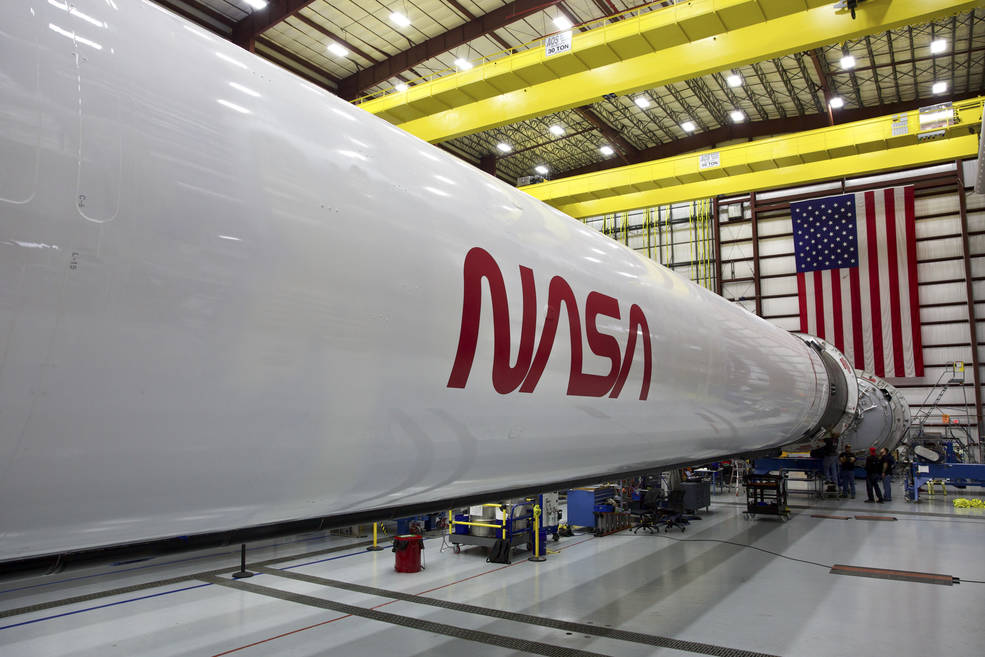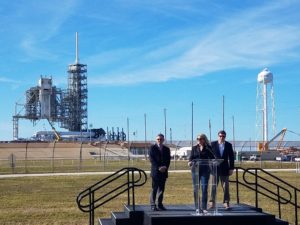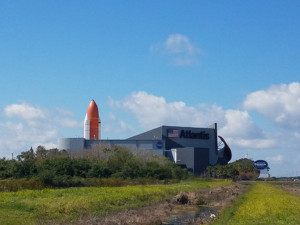
Image: SpaceX
While the COVID-19 Pandemic has gripped the nation and much of the world, shutting down various communities, states, and countries, activity continues at NASA’s Kennedy Space Center in Florida. While the Kennedy Space Center Visitor Center is closed, SpaceX and NASA continue work in preparing for a return to crewed flights to space in the upcoming weeks. Humans haven’t launched from U.S. soil since the end of the Space Shuttle program in July 2011; that will change with SpaceX’s Crew Demo-2 launch slated for mid/late May.
Over the last several months, key members of flight control teams working from NASA’s Johnson and Kennedy Space Centers and SpaceX headquarters in Hawthorne, California, simulated different phases of the upcoming mission while the Demo-2 astronaut crew practiced procedures from inside a realistic simulator of Crew Dragon. Despite the pandemic, preparations have continued.
“The simulations were a great opportunity to practice procedures and to coordinate decision-making for the mission management team, especially with respect to weather,” said Michael Hess, manager of Operations Integration for the Commercial Crew Program (CCP). “Simulation supervisors do a great job at picking cases that really make the team think and discuss.” Recent simulations saw teams execute timelines from hatch closure to undocking with the space station — as well as a free flight in preparation for re-entry and splashdown. In March, the control teams and crew ran through a simulated mission starting at prelaunch and continuing through ascent and eventual rendezvous with the station. “What’s happening in commercial crew is a big deal,” Hess said. “It will be the first time to launch astronauts from U.S. soil since the end of the Space Shuttle Program in 2011, and it will be the first time since STS-1 that we will launch astronauts in a new spacecraft. This new spacecraft, Crew Dragon, was designed and built by SpaceX, not by NASA and traditional contractor partnerships — another first. Bob (Behnken) and Doug (Hurley) will definitely be earning their spacecraft test pilot wings with this mission. Also, the Space Station Program is really looking forward to another way to rotate crews to station to perform science and experiments to benefit all.”

As the countdown clock winds down, Crew Dragon is undergoing final testing and pre-launch processing in a SpaceX facility on nearby Cape Canaveral Air Force Station. All the activity is also kicking off “more simulations, final crew training and flight readiness reviews to ensure all of the mission systems and subsystems are ready for a crewed test flight,” Hess added.
According to NASA, the planned crewed launch for mid/late May continues to proceed despite the pandemic. In a statement released by NASA, they say that “all NASA employees are closely adhering to CDC recommendations on infection control for the coronavirus. As all NASA centers are currently operating in a mode that requires any non-mission-essential work to be done remotely, the number of employees in contact with the crew is limited.”
While things are proceeding as close to normal for the Florida based launch facility, the same isn’t the case for the Kennedy Space Center Visitor facility. The tourist attraction, operated by Delaware North, closed its doors to the public on March 16. In a statement released to the media at the time of the closing, the visitor center said that “leadership will continue to monitor the situation and when it is deemed safe for guests to return, the entire facility will be cleaned and sanitized prior to re-opening. This will include Kennedy Space Center Tour buses, all attractions, eateries and theaters at the main campus and at the Apollo/Saturn V Center.”
While the Visitor Center is closed to guests, their closure has benefited local people in need. Kennedy Space Center Visitor Complex donated more than $10,000 worth of food, including a variety of produce and meat, to The Central Brevard Sharing Center.

“During this unprecedented time, we recognize that members of our community, more than ever before, may not have the means to meet their basic needs,” said Therrin Protze, Chief Operating Officer, Kennedy Space Center Visitor Complex. “It is our hope that Kennedy Space Center Visitor Complex’s donation of excess food to The Central Brevard Sharing Center will help lessen the food insecurity that many could face in the days and weeks to come.”
The Central Brevard Sharing Center provides emergency assistance to those in the community who are struggling to obtain life’s most basic needs, including providing food to those who, during this unprecedented time, are unable to obtain it on their own.
The pandemic has also forced the postponement of the 2020 induction of astronauts into the U.S. Astronaut Hall of Fame. Veteran astronauts Michael E. Lopez-Alegria, Pamela A. Melroy and Scott Kelly, who have all demonstrated outstanding accomplishments in furthering NASA’s mission of exploration and discovery, were selected to receive one of the highest honors in their industry at an official ceremony in May 2020.
In November 2016, a new U.S. Astronaut Hall of Fame opened at Kennedy Space Center Visitor Complex, as part of the Heroes & Legends attraction.